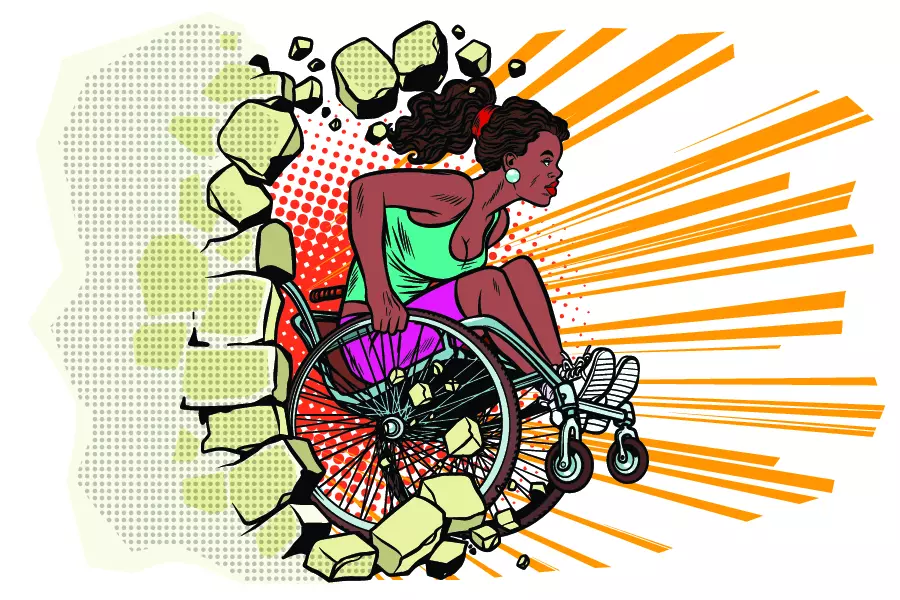There are many myths about disabled people that need to be debunked. These misconceptions can lead to assumptions and judgments about persons with disabilities that are simply not true. Read on to learn 5 myths about disabled people that have been debunked by facts.
Myth #1: Disabled people are all the same.
Fact: Disabled people are as diverse as any other group of people. We have different abilities, interests, and life experiences.
Myth #2: All disabled people need personal assistance.
Fact: While some disabled people do need personal assistance, many others do not. We all have different needs and preferences in terms of how we want to live our lives.
Myth #3: Disabled people are always sick or in pain.
Fact: Like everyone else, disabled people experience good days and bad days. We may have chronic health conditions, but that doesn’t mean that we’re always sick or in pain.
Myth #4: Disabled people can’t work or contribute to society.
Fact: There are many disabled people who are employed and contributing members of society. We have a lot to offer, and employers are starting to realize this.
Myth #5: Disabled people are a burden on society.
Fact: Disabled people are not
10 Stereotypes of Disability
1. That all disabled people are the same.
2. That disabled people are less capable than non-disabled people.
3. That disabled people are a burden on society.
4. That disabled people are not interested in sex or relationships.
5. That disabled people are childlike and need to be protected.
6. That disabled people cannot work and are a drain on the economy.
7. That disabled people are always sick and in need of medical care.
8. That disabled people are not as intelligent as non-disabled people.
9. That disabled people have no sense of humor.
10. That the only good thing about being disabled is that you get free stuff from the government
Negative Stereotypes of Disability
There are many negative stereotypes about people with disabilities. These include that people with disabilities are not as intelligent or capable as those without disabilities, that they are a burden on society, and that they are not worthy of love or respect. These stereotypes can lead to discrimination and exclusion from full participation in society. They can also make it harder for people with disabilities to find employment, access education and health care, and participate in other aspects of life.
The Americans with Disabilities Act (ADA) is a broad anti-discrimination law that protects people with disabilities from discrimination in many areas of life.
The ADA prohibits discrimination in employment, housing, education, transportation, and other areas of public life.
The ADA also has a specific provision that prohibits discrimination against people with disabilities in the criminal justice system.
This includes people who are accused of crimes, people who are convicted of crimes, and people who are incarcerated.

Myths and Facts About Intellectual Disability
There are many myths and misconceptions about intellectual disability. This can lead to misunderstanding and fear among the general public. It is important to dispel these myths in order to help create a more inclusive society.
Intellectual disability is not synonymous with mental illness. Intellectual disability is a neurodevelopmental disorder that impairs an individual’s ability to learn and function in daily life. Mental illness, on the other hand, is a mental health condition that can cause changes in mood, thinking, and behavior.
People with intellectual disabilities are not always locked away in institutions. In fact, most people with intellectual disabilities live in the community with support from family, friends, and service providers.
People with intellectual disabilities are capable of leading fulfilling lives. They can form relationships, work, and contribute to their communities in a variety of ways.

Positive Facts About Disability
While it is true that disabilities can present many challenges, it is also important to focus on the positive aspects of living with a disability. For example, people with disabilities often have a greater appreciation for life and what is important. They may also be more creative and resourceful, as they have to find ways to work around their limitations. Additionally, people with disabilities often form strong bonds with others who share similar experiences. These positive aspects of living with a disability can help offset some of the challenges that come along with it.

